Satisfaction with Kwasi Kwarteng as Chancellor at record low as most feel worse off after Government’s economic plans
- 65% dissatisfied with the Chancellor, only 12% satisfied.
- In Ipsos trends going back to Denis Healey, only Norman Lamont and Ken Clarke have received as bad negative net satisfaction ratings
- Dissatisfaction with Liz Truss also more than doubles in her second month
The latest Ipsos Political Monitor, taken 5-12 October, shows the Prime Minister and the Chancellor receiving sharply negative satisfaction ratings from the public, as the majority feel worse off after their recent economic policy announcements. Meanwhile, Labour extends its lead in voting intentions from last month, and Keir Starmer’s satisfaction ratings also improve.
Voting intentions
- Labour lead in current headline voting intentions by 47% (up 7 points since September) to 26% for the Conservatives (down 4), with the Liberal Democrats on 10% (down 3).
- This is the largest Labour lead Ipsos has recorded since October 2002 (although note that our methodology has changed since then1). It is Labour’s highest vote share since November 2012 and the Conservatives’ lowest since June 2019. One in five 2019 Conservative voters now say they have switched to Labour.
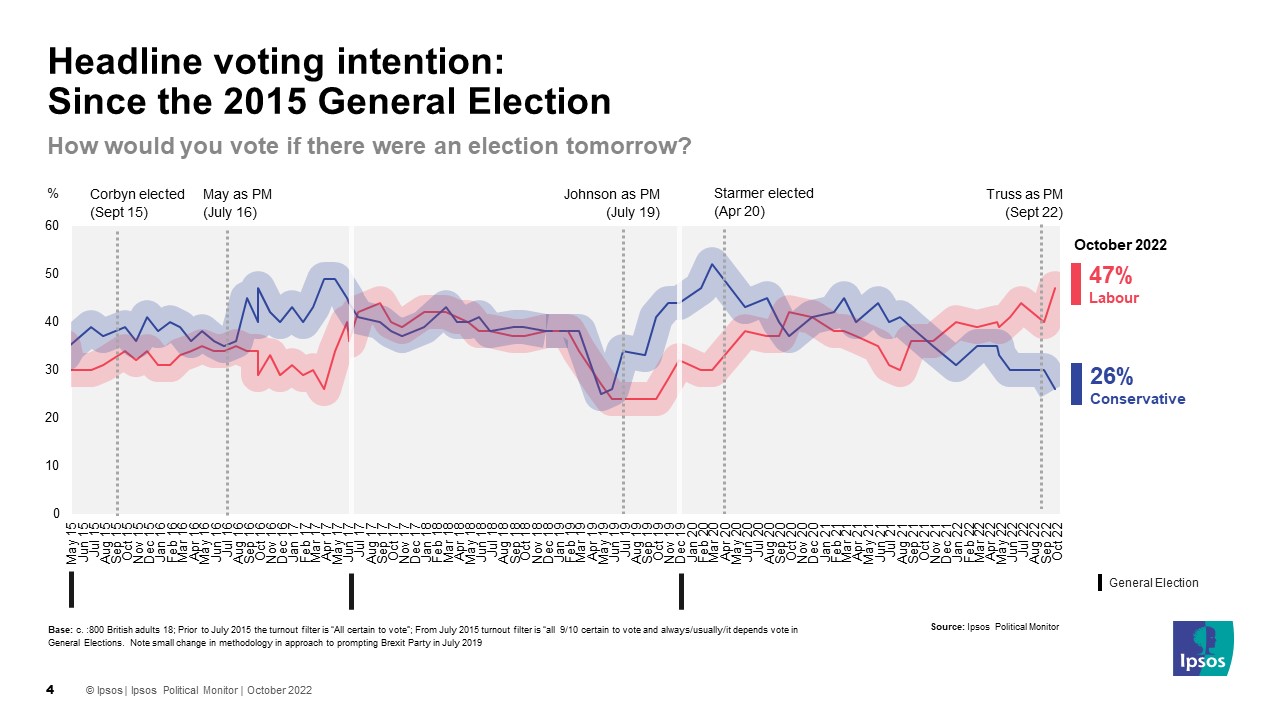
Party leader satisfaction ratings
- 67% say they are dissatisfied with Liz Truss as Prime Minister (+38 points from last month), 16% are satisfied (-11) and 17% say they don’t know (-27).
- This net satisfaction score of -51 is worse than the lowest scores achieved by Boris Johnson (-46), Theresa May (-44), David Cameron (-38) and Tony Blair (-44). It is similar to Gordon Brown in July 2008 during the financial crisis (-51), whilst John Major (-59) and Margaret Thatcher (-56) both slipped lower. However, no PM has reached this low so quickly in their tenure.
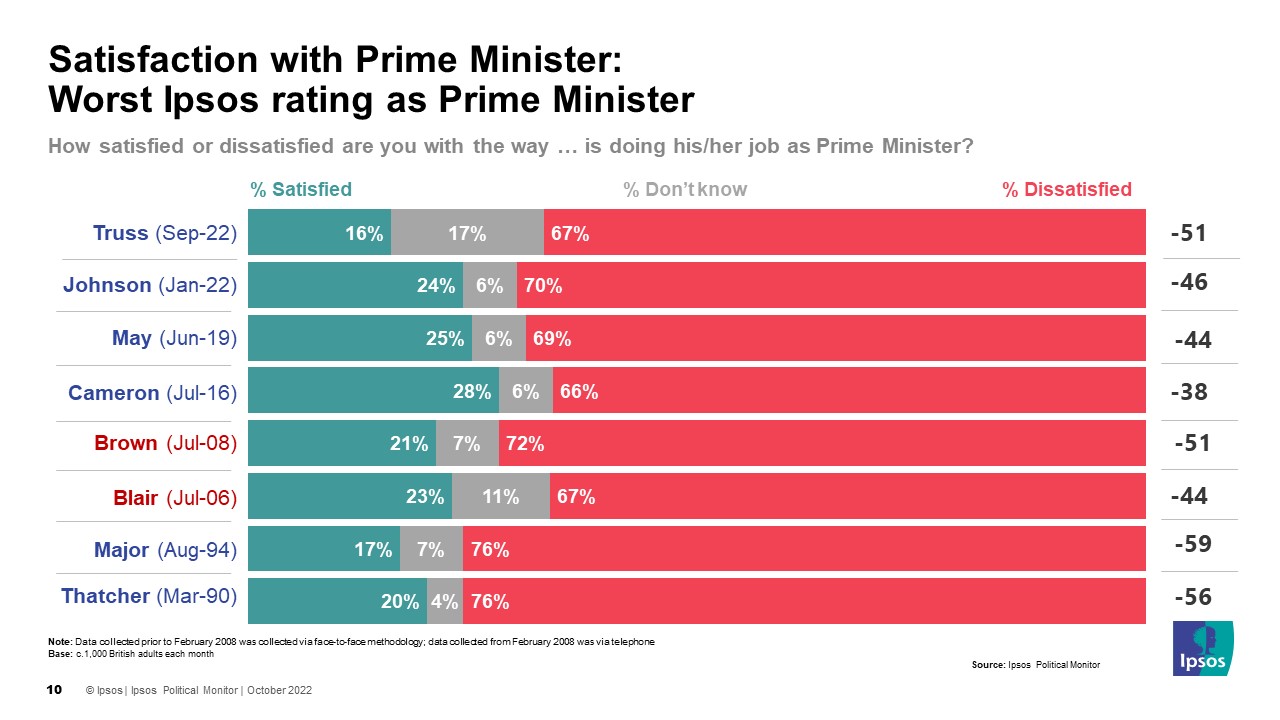
- Current Conservative voters are split over Liz Truss’ performance: 40% are satisfied (-15 from last month), 39% dissatisfied (+32). However, the majority of 2019 Conservative voters are dissatisfied (56%).
- Four in five are dissatisfied with the government (80%, +10 since September), whilst just 11% are satisfied (-9). This net satisfaction score of -69 is comparable to the worst achieved under Johnson (-67, also very early in his leadership), whilst Major’s (-78) and May’s (-77) both sunk lower. It is worse than the lowest achieved by Cameron’s (-45), Brown’s (-62), Blair’s (-47) and Thatcher’s (-63) governments.
- Keir Starmer’s ratings have improved but opinion is still divided: 38% are satisfied with him (+7 from last month) and 39% dissatisfied (-6). His net satisfaction of -1 is his highest score since February 2021 (when it was +5). His ratings have also improved among Labour supporters – 61% are satisfied (+11).
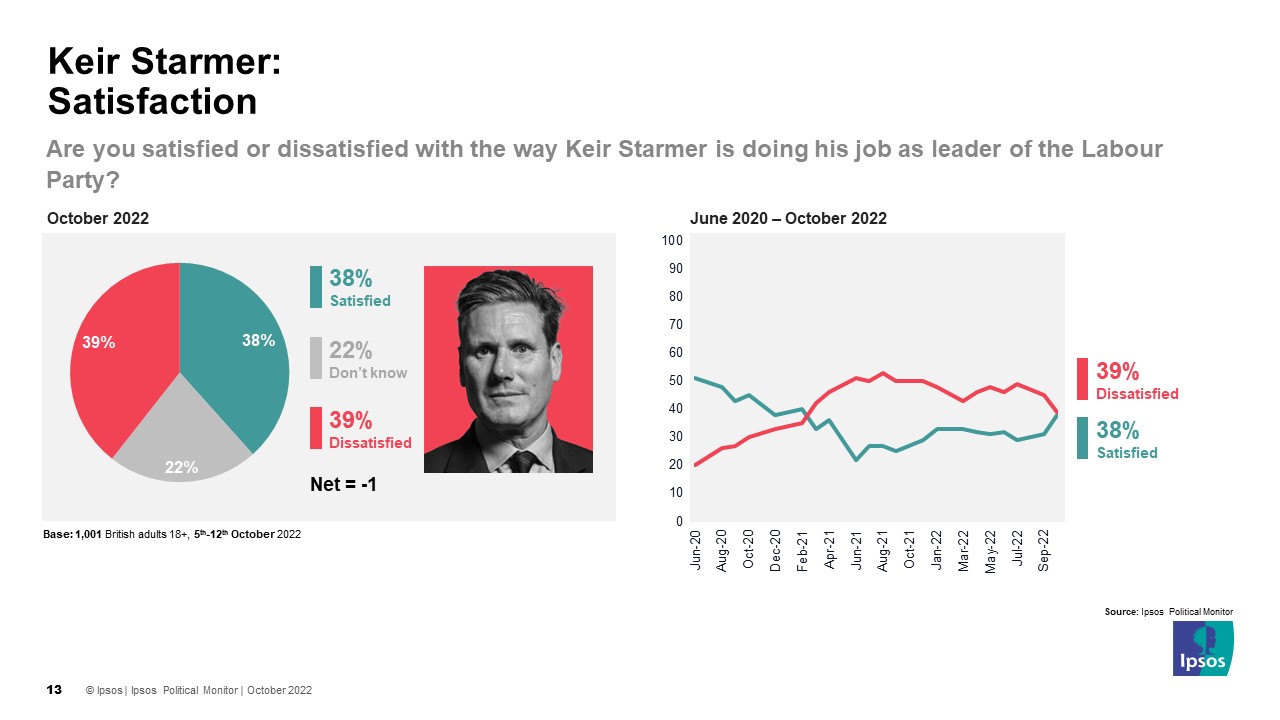
- There is little change for Ed Davey: 25% satisfied (+3 from September), 29% dissatisfied (-2) and 46% still don’t know (-1).
The Chancellor and the economy
- Kwasi Kwarteng has among the worst ratings of any Chancellor since Ipsos started collecting trends in 1976. Two in three (65%) are dissatisfied with him, just 12% are satisfied and 23% say they don’t know.
- His scores are comparable to those achieved by Norman Lamont (18% satisfied, 70% dissatisfied in March 1993) and Ken Clarke (17% satisfied, 70% dissatisfied in December 1994) in the mid-90s.
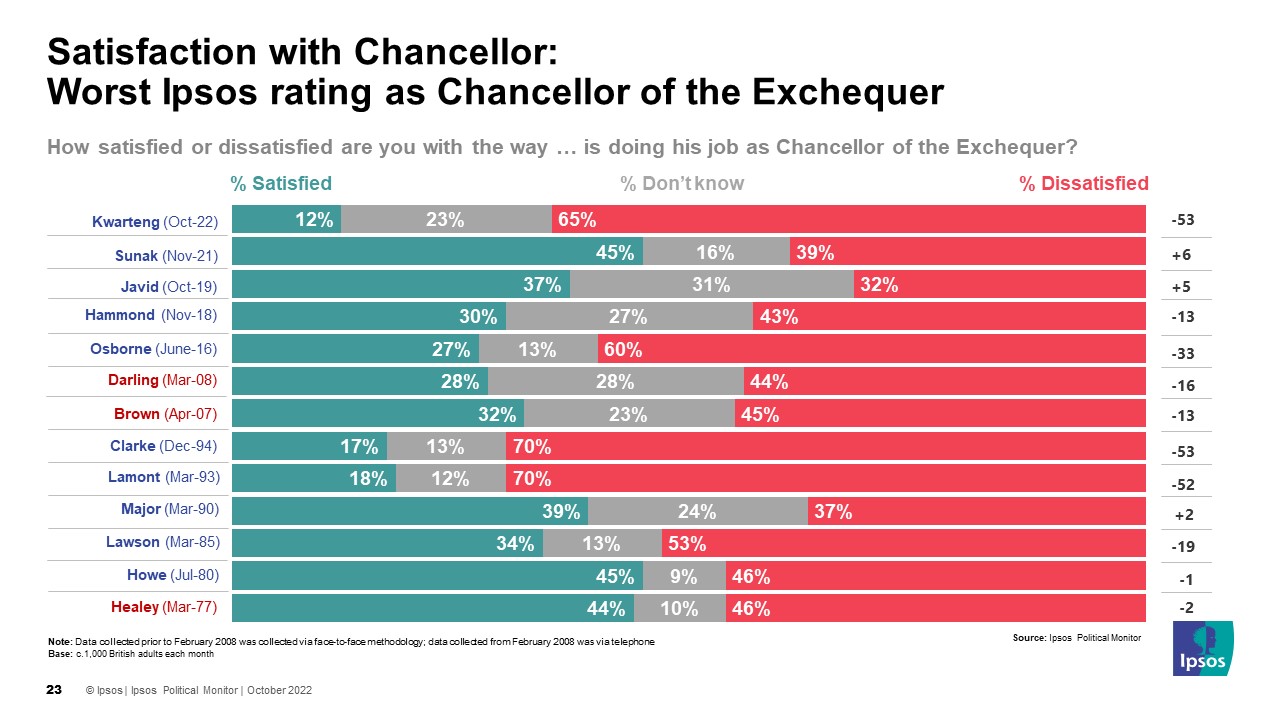
- Only a quarter of Conservative supporters are satisfied with him (26%), while 45% are dissatisfied.
- When asked to take everything into account from the Government’s recent economic plans (including energy bill caps and tax cuts, but also warnings of higher interest rates), over half (56%) of Britons expect to be worse off than before. Only 10% think they will be better off, and a third (32%) that it will be about the same. In particular, the middle aged (64% of 35-54 year olds), public sector workers (70%), mortgage holders (61%) and those without qualifications (63%) expect to be worse off.
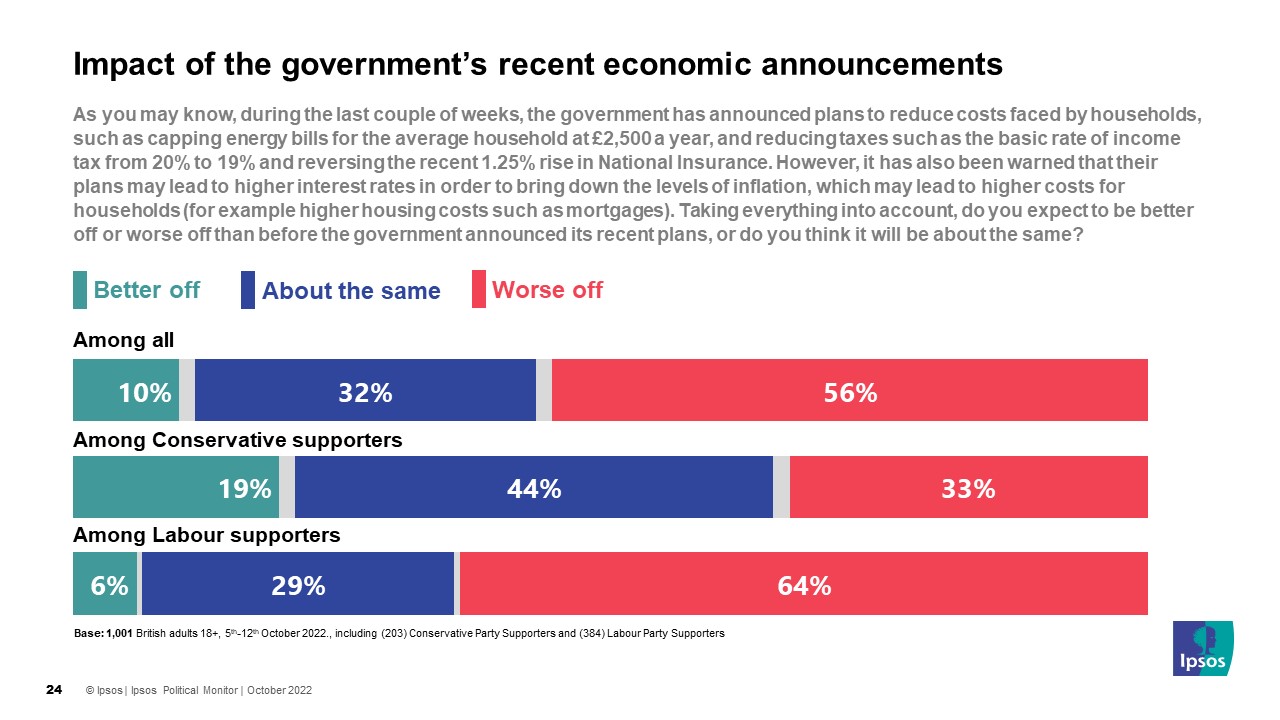
- Among those who expect to be worse off, two in three (65%) blame the government a great deal, and another one in five (19%) a fair amount.
- Overall, public pessimism about the economic outlook has barely shifted over the month. 70% expect things to get worse over the next year (-1), 11% say it will stay the same (+1), and 16% predict it will improve (+1). This gives an Ipsos Economic Optimism Index score of -54.
Gideon Skinner, Head of Political Research at Ipsos, UK, says of the findings:
The fallout from the mini-budget continues for the Prime Minister and Chancellor. While at first the public was reserving judgement, the danger for both of them is that in only their second month those early impressions have rapidly become much more negative. Even in our long-term trends going back over the decades there are few Prime Ministers (and no Chancellors) with worse scores, and none that have deteriorated so quickly.
Underpinning this is the poor reaction to their economic policies, which many think will leave them worse off during high levels of concern about the cost of living, and for which the Government is being held increasingly responsible – and from which Labour is benefiting.
Technical Note
Ipsos interviewed a representative sample of 1,001 adults aged 18+ across Great Britain. Interviews were conducted by telephone: 5th to 12th October 2022. Data are weighted to match the profile of the population. All polls are subject to a wide range of potential sources of error.
On the basis of the historical record of the polls at recent general elections, there is a 9 in 10 chance that the true value of a party’s support lies within 4 points of the estimates provided by this poll, and a 2 in 3 chance that they lie within 2 points. This is especially important to keep in mind when calculating party lead figures.
Note 1: Specifically, from November 2002 our headline voting intention figures were based on a filter to only include those most certain to vote.






